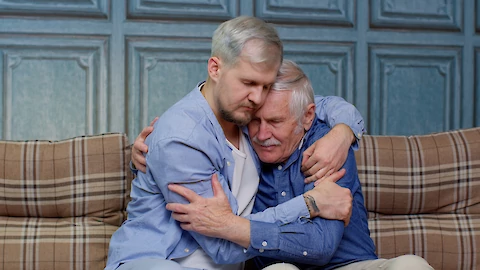
Advance directives are an essential component of healthcare planning for seniors reaching the end of life. Families can have difficult conversations when discussing end-of-life matters. Still, it doesn't have to add additional worry and stress if they plan well in advance by implementing an advance directive. It can be a daunting experience to even think about these decisions, but establishing clear and legal directions for medical treatments provides peace of mind that care will be given concerning the senior's wishes.
What Is an Advance Directive?
An advance directive is a legal document that details and explains a person's wishes about their anticipated healthcare in the event of an illness or injury which leaves them unable to make decisions for themselves. Advance directives are important documents as they assure that, even if you can't make decisions for yourself, your wishes will be respected and followed by medical personnel. There are three different types of advance directives:
- A living will is a document that explains the senior's wishes concerning life-saving treatments and procedures, usually in the case of end-stage illness or incapacitating circumstances. This ensures healthcare personnel will follow the instructions written out in advance by the elderly.
- A durable power of attorney for health care is a document that appoints an individual to make healthcare decisions on behalf of another person when they cannot do so themselves. The designated person should always be willing and able to understand and advocate appropriately for the senior.
- A Do Not Resuscitate (DNR) order directs medical personnel not to attempt cardiopulmonary resuscitation if cardiac or respiratory arrest occurs. It's important to note that this does not apply if natural death has occurred. DNR orders only reflect preferences about intervention at the moment of impending death due to cardiac or respiratory failure, trauma, etc.
What Are the Benefits of Advance Directive Planning?
Advance directives give your senior loved one a sense of control and independence, allowing them to make decisions in advance about their end-of-life care. Advance-directed planning also offers peace of mind for the family by guiding and managing complex decision-making or issues that could arise as death approaches. It also gives the family peace of mind that they are following their loved one's wishes, even when they can't advocate for themselves.
What Are the Challenges of Advance Directive Planning?
Advance directives present ethical and legal considerations for the senior and the family. As such, families must understand the various laws in their jurisdiction to ensure these wishes are structured correctly. Additionally, cultural customs are essential in forming an opinion on end-of-life care decisions. Families should discuss these during advance directive planning.
How to Make Advance Directive Planning Easier
Advance directive planning can be intimidating, but there are several resources to make the process easier. Families must educate themselves about advance directives, state laws and regulations, and how cultural customs affect end-of-life decisions. Consulting with an experienced elder law attorney or geriatric care manager is also recommended, as they can provide guidance and help answer questions throughout the process.
Get Support With End-of-Life-Decisions From Our In-Home Care Team
Advance directive planning can be a challenging but essential process for end-of-life care. It gives seniors the ability to decide their preferred treatments, relieves stress associated with decision-making for family members and medical personnel, and provides peace of mind that wishes will be carried out in the event of illness or death. If you have a senior loved one facing these end-of-life decisions, Senior Helpers of Reading is here to help! Contact us today and learn more about how we support seniors in Birdsboro, Mohnton, Morgantown, Newmanstown, Reading, Reinholds, Robesonia, and Wernersville.